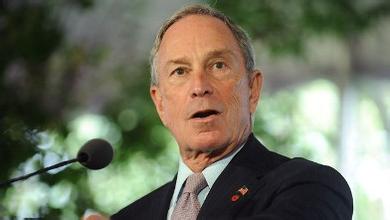

 |
| Michael R. Bloomberg(File Photo) |
Time has come for setting more ambitious goals – and implementing the innovative policies necessary to achieve them.
One of the most important developments in global affairs over the past year has been China’s decision to accelerate its transition to cleaner energy and more directly confront the challenge of climate change. As the United Nations prepares for a major climate change summit in Paris in December, China’s leadership is sending a strong signal to other nations that the time for action is now, which is helping to improve the odds that the Paris conference will be a big success.
Increasingly, cities and countries – including China – are recognizing that climate change is not only a challenge but also an opportunity: To clean their air, improve their public health, modernize their infrastructure, improve their economic competitiveness, and raise their living standards. Fighting climate change, after all, requires reducing pollution – and reducing pollution is one of the best ways to attract investment, create jobs, expand transit options, and extend life expectancy.
President Xi Jinping and China’s leaders support this understanding of climate change. Last year's US-China agreement setting post-2020 emissions targets for the world’s top two emitters of greenhouse gases showed that global cooperation is both possible and mutually beneficial. President Xi’s visit to the U.N. headquarters in New York City in September offers an opportunity for China and the rest of the world to discuss the importance of international cooperation in combatting climate change.
In China and around the world, cities are playing a leading role in the fight against climate change. People want to live and work in cities with clean air, and Beijing’s leaders recognized that improving air quality was a critical part of strengthening the city’s business environment. Beijing’s decision to close its four major coal-fired power plants is a major step forward both for the health of the city’s residents and the region’s economic competitiveness – and for climate change, too.
China is already demonstrating that battling climate change and promoting economic growth go hand-in-hand. During my time as Mayor of New York, we were able to reduce our carbon footprint by 19% in six years, making our air cleaner than it has been in more than 50 years. China’s cities can achieve more benefits for their citizens, using their own policies and strategies.
Part of my work with the United Nations, where I am the Secretary-General’s Special Envoy for Cities and Climate Change, involves encouraging national governments to look to cities as their partners on climate change. China understands the important role cities play in reducing emissions, and there is much that city leaders can learn from one another. It is encouraging that several Chinese cities have joined the C40 Cities Climate Leadership Group, which helps cities exchange innovative ideas.
As access to global financial markets and the latest technology improves, China and other emerging economies have an opportunity to leapfrog over 20th century energy systems and adopt more modern and cleaner forms of production. China’s recent decision to solicit investors for public private partnerships focused on green infrastructure is a promising new development. A recent report from Bloomberg New Energy Finance shows that growth in China's clean energy market is up 15% over last year, and it will continue to grow as China expands its clean energy ambitions.
China’s commitment to cap its emissions by 2030 is a highly encouraging development in the run up to the UN Conference in Paris. It should also be a signal to the rest of the world that the time has come for setting more ambitious goals – and implementing the innovative policies necessary to achieve them.
The author is the UN Secretary-General's Special Envoy for Cities and Climate Change, three-term Mayor of New York City and Founder of Bloomberg L.P.
 Indomitable Chinese people during WWII
Indomitable Chinese people during WWII
 Awesome Chinese missiles
Awesome Chinese missiles In pics: shocking aftermath of Tianjin blasts
In pics: shocking aftermath of Tianjin blasts
 Striking moments when strategic missiles are launched
Striking moments when strategic missiles are launched Construction on Asia’s biggest suspension bridge started
Construction on Asia’s biggest suspension bridge started Impressive firing of China’s rocket artillery system
Impressive firing of China’s rocket artillery system Shocking scenes found in 4000-year-old earthquake relic
Shocking scenes found in 4000-year-old earthquake relic Female soldiers add color to military parades
Female soldiers add color to military parades Mums stage breastfeeding flash mob
Mums stage breastfeeding flash mob Museum of nonsense
Museum of nonsense Tianjin explosion: Latest updates
Tianjin explosion: Latest updates Tianjin officials fumble to communicate
Tianjin officials fumble to communicate Blaze and glory: brilliant photos of China's mountain firefighters on the frontlines
Blaze and glory: brilliant photos of China's mountain firefighters on the frontlinesDay|Week